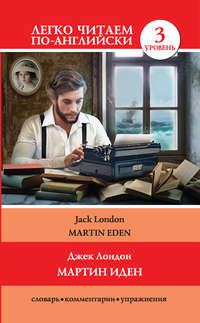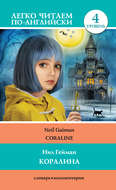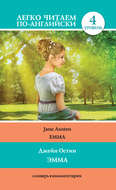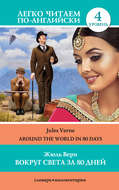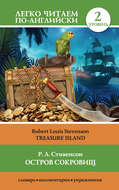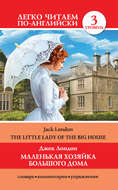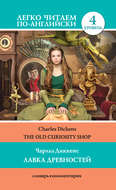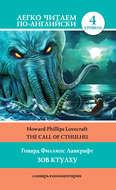Kitabı oku: «Мартин Иден / Martin Eden», sayfa 2
Chapter 4
Martin Eden entered his room, a tiny hole with space for a bed, a wash-stand,25 and one chair. Mr. Higginbotham was too greedy to keep a servant when his wife could do the work. Martin placed the Swinburne and Browning on the chair, took off his coat, and sat down on the bed. He murmured, “Ruth.”
“Ruth.” He had not thought a simple sound could be so beautiful. This name delighted his ear.26 “Ruth.” It was a talisman, a magic word to conjure with. Each time he murmured it, her face shimmered before him. The very thought of her27 ennobled and purified him, made him better. This was new to him. He had never known women who had made him better.
He got up abruptly and tried to see himself in the dirty looking-glass28 over the wash-stand. It was the first time he had ever really seen himself. He saw the head and face of a young fellow of twenty. The brown sunburn of his face surprised him. He had not dreamed he was so black. His arms were sunburnt, too.
He sat back on the bed with a bitter laugh, and took off his shoes. He took the Browning29 and the Swinburne from the chair and kissed them. She told me to come again, he thought. He looked at himself in the glass, and said aloud:
“Martin Eden, tomorrow you go to the library and read up on etiquette.”
Chapter 5
He awoke next morning in a steamy atmosphere. As he came out of his room he heard the slosh of water, a sharp exclamation. The squall of the child went through him like a knife. How different, he thought, from the atmosphere of beauty and repose of the house wherein Ruth dwelt. There it was all spiritual. Here it was all material.
“Come here, Alfred,30” he called to the crying child. He put a quarter31 in the youngster’s hand and held him in his arms a moment. “Now run along and get some candy, and don’t forget to give some to your brothers and sisters.”
His sister looked at him. The tears welled into her eyes.
“You’ll find breakfast in the oven,” she said hurriedly.
Martin went into the kitchen. Then he went downstairs and out into the street. He had debated between the Berkeley Library and the Oakland Library, and chose the latter because Ruth lived in Oakland. He wandered through endless rows of books, and did not know what to ask the man at the desk.
“Did you find what you wanted?” the man at the desk asked him as he was leaving.
“Yes, sir,” he answered. “You have a fine library here.”
The man nodded. “We should be glad to see you here often. Are you a sailor?”
“Yes, sir,” he answered. “And I’ll come again.”
Now, how did he know that? he asked himself as he went down the stairs.
Chapter 6
Martin Eden was afraid that he might visit Ruth too soon. He spent long hours in the Oakland and Berkeley libraries. He burned the gas late in the servant’s room, and was charged fifty cents a week for it by Mr. Higginbotham.
He read many books; every page of every book was a hole into the realm of knowledge. His hunger increased. He read more of Swinburne than was contained in the volume Ruth had given him. Then he studied Kipling’s poems. Psychology was a new word in Martin’s vocabulary.
He dared not go near Ruth’s house in the daytime, but at night he was lurking like a thief around the Morse home.
He had undergone a moral revolution. Her cleanness and purity made him clean, too. He began to brush his teeth, and used a nail-brush. He found a book in the library on the care of the body, and promptly decided to have a cold-water bath every morning.
The reform went deeper. He still smoked, but he drank no more. He was drunken in new and more profound ways – with Ruth, who had fired him with love and with a glimpse of higher and eternal life; with books, and with the sense of personal cleanliness.
One night he went to the theatre, and from the second balcony he did see her. He saw her with Arthur and a strange young man with eyeglasses.
He left his seat before the curtain went down on the last act. He wanted to see her again. Suddenly two girls appeared. One of them was a slender, dark girl, with black, defiant eyes. They smiled at him, and he smiled back.
“Hello,” he said.
It was automatic. The black-eyed girl smiled, and showed signs of stopping. At the corner where the main stream of people flowed onward, he started to follow the cross street. But the girl with the black eyes caught his arm, and cried:
“Bill! Where are you going?”
He halted with a laugh, and turned back.
“What’s her name?” he asked the giggling girl, nodding at the dark-eyed one.
“You ask her,” was the response.
“Well, what is it?” he demanded, turning on the girl in question.
“You didn’t tell me yours, yet,” she retorted.
“You never asked it,” he smiled. “But, true, it’s Bill, all right, all right.”
“Oh,” she looked him in the eyes. “What is it, honest?”
Oh, he knew those girls, and knew them well, from A to Z. They work hard, they are nervously desirous for some happiness in the desert of existence.
“Bill,” he answered, nodding his head. “Sure, Bill and no other.”
“He isn’t Bill at all,” her friend noticed.
“How do you know?” he demanded. “You never saw me before.”
“No need to, to know you’re lying,” was the retort.
Those girls from the factory… The cheap cloth, the cheap ribbons, and the cheap rings on the fingers. He felt a tug at his arm, and heard a voice saying:
“Wake up, Bill! What’s the matter with you?”
“What were you saying?” he asked. “There’s only one thing wrong with the programme,” he said aloud. “I’ve got a date already.”
The girl’s eyes blazed her disappointment.
“To visit a sick friend, I suppose?” she sneered.
“No, a real, honest date with – ” he faltered, “with a girl. But why can’t we meet some other time? You didn’t tell me your name. And where do you live?”
“Lizzie,” she replied, her hand pressing his arm, while her body leaned against his. “Lizzie Connolly.32”
He talked on a few minutes before saying good night. He did not go home immediately; and under the tree he looked up at a window and murmured: “That date was with you, Ruth.”
Chapter 7
A week of heavy reading had passed since the evening he first met Ruth Morse, and still he dared not call. He did not know the proper time to call, and he was afraid of a blunder. He left his old companions, and has no new companions. Nothing remained for him but to read, and long hours he devoted to it. But his eyes were strong, and they were placed on a strong body.
It seemed to him, by the end of the week, that he had lived centuries, so far behind33 was the old life. He attempted to read books that required years of studying. One day he read a book of philosophy, and the next day one that was ultra-modern. It was the same with the economists. On the one shelf at the library he found Karl Marx, Ricardo, Adam Smith, and Mill.34
Poetry, however, was his solace, and he read much of it, finding his greatest joy in the simpler poets, whom he could understand. He loved beauty, and there he found beauty. Poetry, like music, touched him profoundly. The pages of his mind were blank, so he was soon able to extract great joy from chanting aloud. He enjoyed music and the beauty of the printed words he had read.
The man at the desk in the library had seen Martin there so often that he had become quite cordial, always greeting him with a smile and a nod when he entered. One day Martin asked him:
“Well, there’s something I’d like to ask you.”
The man smiled and paid attention.
“When you meet a young lady and she asks you to come, how soon can you come?”
“Why, any time,” the man answered.
“Yes, but this is different,” Martin objected. “She – I – well, you see, it’s this way: maybe she won’t be there. She goes to the university.”
“Then come again.”
“If I could…,” he said.
“I beg pardon?”
“What is the best time to come? The afternoon? Or the evening? Or Sunday?”
“I’ll tell you,” the librarian said with a brightening face. “You call her up on the telephone35 and find out.”
“I’ll do it,” he said, picking up his books and starting away.
He turned back and asked:
“When you’re speaking to a young lady – say, for instance, Miss Lizzie Smith36 – do you say ‘Miss Lizzie’? or ‘Miss Smith’?”
“Say ‘Miss Smith,’” the librarian stated authoritatively. “Say ‘Miss Smith’ always – until you come to know her better.37”
So it was that Martin Eden solved the problem.
“Please, come any time; I’ll be at home all afternoon,” was Ruth’s reply over the telephone to his request as to when he could return the borrowed books.
She met him at the door herself, and her woman’s eyes noticed the certain slight but indefinable change in him for the better.38 Also, she was struck by his face. She felt the desire to lean toward him for warmth.
Once they were seated in the living-room, they talked first of the borrowed books, of Swinburne, and of Browning. Ruth wanted to help him. His neck was near, and there was sweetness in the thought of laying her hands upon it. She did not dream that the feeling he excited in her was love. She thought she was merely interested in him as an unusual type.
She did not know she desired him; but with him it was different. He knew that he loved her, and he desired her as he had never before desired anything in his life. He had loved poetry for its beauty; but since he met her the gates to the vast field of love-poetry had been opened wide.
His gaze wandered often toward her lips, and he yearned for them hungrily. But there was nothing gross or earthly in it. They were lips of pure spirit, and his desire for them seemed absolutely different from the desire that had led him to other women’s lips. He did not dream how ardent and masculine his gaze was, her spirit was affecting him. Her virginity exalted and disguised his own emotions, elevating his thoughts to a chastity.
“I wonder if I can get some advice from you,” he began. “You remember I said I couldn’t talk about books and other things because I didn’t know how? Well, I’ve done a lot of things ever since. I never had any advantages. I’ve worked hard ever since I was a kid. I was never inside a house like this. When I come a week ago, and saw all this, and you, and your mother, and brothers, and everything – well, I liked it. I’d heard about such things and read about such things in some of the books, and when I looked around at your house, why, the books come true.39 And I liked it. I wanted it. I want it now. I want to breathe air like you get in this house – air that is filled with books, and pictures, and beautiful things, where people talk in low voices and are clean, and their thoughts are clean. When you were crossing the room to kiss your mother, I thought it was the most beautiful thing I ever seen. I’ve seen a lot of things in my life, but I want to see more.
But listen, here it is. I want to enter the kind of life you have in this house. There’s more in life than drinking, and hard work. Now, how to begin? I can make most men sick when it comes to hard work.40 Once I get started, I’ll work night and day. Maybe you think it’s funny, when I ask you about all this. I know you’re the last person in the world I ought to ask, but I don’t know anybody else I could ask – unless it’s Arthur. Maybe I must ask him. If I was – ”
His voice died away. Ruth did not speak immediately. She had never looked in eyes that expressed greater power. Here was a man who could do anything. Her face was all sympathy when she began to speak.
“What you need, you realize yourself, and it is education. You should go back and finish grammar school, and then go through to high school and university.”
“But that takes money,” he interrupted.
“Oh!” she cried. “I had not thought of that. But then you have relatives, somebody who could assist you?”
He shook his head.
“My father and mother are dead. I have two sisters, one married, and the other’ll get married soon, I suppose. I have brothers, – I’m the youngest, – but they never helped anybody. The oldest died in India. Two are in South Africa now, and another is travelling with a circus – he does trapeze work. All what I want to know is where to begin.”
“I should say the first thing of all is the grammar. Your grammar is – ” She wanted to say “awful,” but she finished, “is not particularly good.”
He flushed and sweated.
“I know I talk a lot of slang and words you don’t understand. But then they’re the only words I know – how to speak. I’ve got other words in my mind, I found them from books, but I can’t pronounce them, so I don’t use them.”
“It isn’t what you say, so much as how you say it. I can be frank, can’t I? I don’t want to hurt you.”
“No, no,” he cried, while he secretly blessed her for her kindness. “‘You was right! I want to know these things from you than from anybody else.”
“Well, then, you say, ‘You was’; it is not correct. You must say, ‘You were.’ You often say ‘I seen’ instead of ‘I saw.’ You use the double negative – ”
“What’s the double negative?” he demanded; then added humbly, “You see, I don’t even understand your explanations.”
“I’m afraid I didn’t explain that,” she smiled. “A double negative is – let me see – well, you say, ‘never helped nobody.’ ‘Never’ is a negative. ‘Nobody’ is another negative. It is a rule that two negatives make a positive. ‘Never helped nobody’ means that they helped somebody.”
“That’s pretty clear,” he said. “I never thought of it before. I never thought of it before, and I’ll never say it again.”
She was pleased and surprised with the quickness and surety of his mind.
“You’ll find it all in the grammar,” she went on. “There’s something else I noticed in your speech.”
Martin flushed again.
“You say ‘ben’ for ‘been,’” she continued; “‘come’ for ‘came’; and the way you chop your endings is something dreadful.”
“How do you mean?” He leaned forward. “How do I chop?”
“You don’t complete the endings. ‘A-n-d’ spells ‘and.’ You pronounce it ‘an’.’ ‘I-n-g’ spells ‘ing.’ Sometimes you pronounce it ‘ing’ and sometimes you leave off the ‘g.’ T-h-e-m’ spells ‘them.’ You pronounce it – oh, well, what you need is the grammar. I’ll get one and show you how to begin.”
She arose, and he stood up awkwardly, worrying as to whether he was doing the right thing.
When she returned with the grammar, she sat down beside him. She turned the pages of the grammar, and their heads were inclined toward each other. He could scarcely breathe, and his heart was pounding the blood up into his throat and suffocating him.
